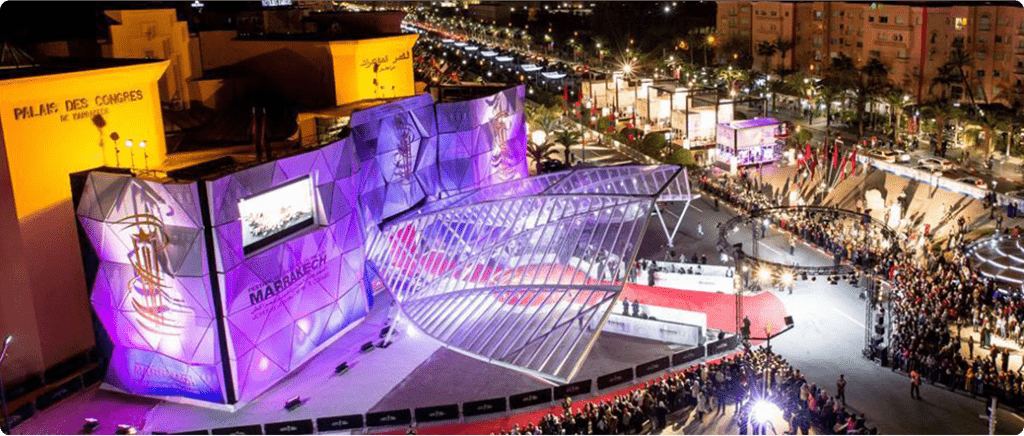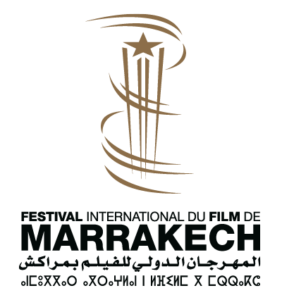Marrakech international film festival

THE INTERNATIONAL FILM FESTIVAL :
A STAR IN AFRICA AND THE ARAB WORLD
The Marrakech International Film Festival was created in 2001 by His Majesty King Mohammed VI to promote and develop the art of cinema and the film industry in Morocco.
Today, after more than twenty years, the Festival is a place of expression and discovery that takes up the challenges of diversity, exchange and enrichment. It is also an opportunity for Morocco to welcome and pay tribute to great personalities of the world of film. The event attracts a large audience, both national and international, and benefits from a strong reputation and its prestigious image.
The Festival is further distinguished by its geographical location: Marrakech, whose history, values and international influence have long made it a destination city.
A BOUNTIFUL PROGRAMME :
DISCOVERING NEW TALENTS AND CELEBRATING GREAT PERSONALITIES OF WORLD CINEMA
The Marrakech International Film Festival is distinguished not only by the quality of its programming, but also by its editorial and artistic position, which provides a wide space for cinema. Every year, the Festival welcomes great personalities of world cinema to receive tributes or to participate in its In Conversation With programme.

The official selection features an international competition of first and second features dedicated to the discovery of filmmakers from around the world, as well as a wide selection of films of different genres from nations worldwide. The Festival’s several sections include Galas, Special Screenings, the 11th Continent—a section dedicated to bold and innovative films—a Panorama of Moroccan Cinema, Cinema for Young Audiences, and open-air screenings at Place Jemaa El Fna.
In 2018, the Festival launched the Atlas Workshops, an industry and talent development programme, whose mission is to support the new generation of Moroccan, Arab and African filmmakers and to create a space for exchange between international professionals and regional talent.
HISTORY OF MARRAKECH FESTIVAL
Created in 2018, over its four editions the Atlas Workshops platform has supported eighty-eight projects and films, several of which have gone on to win awards at prestigious films festivals—among them Ismaël El Iraki’s Burning Casablanca (2020), which won the Best Actress award in the Orizzonti section at the Venice Film Festival; Omar El Zohairy’s Feathers (2021), the first Arab film to win the Grand Prix in the Semaine de la Critique at the Festival de Cannes; and Khadar Ahmed’s The Gravedigger’s Wife (2021), which won the Gold Stallion at Fespaco and was Somalia’s first entry for the Academy Awards.

